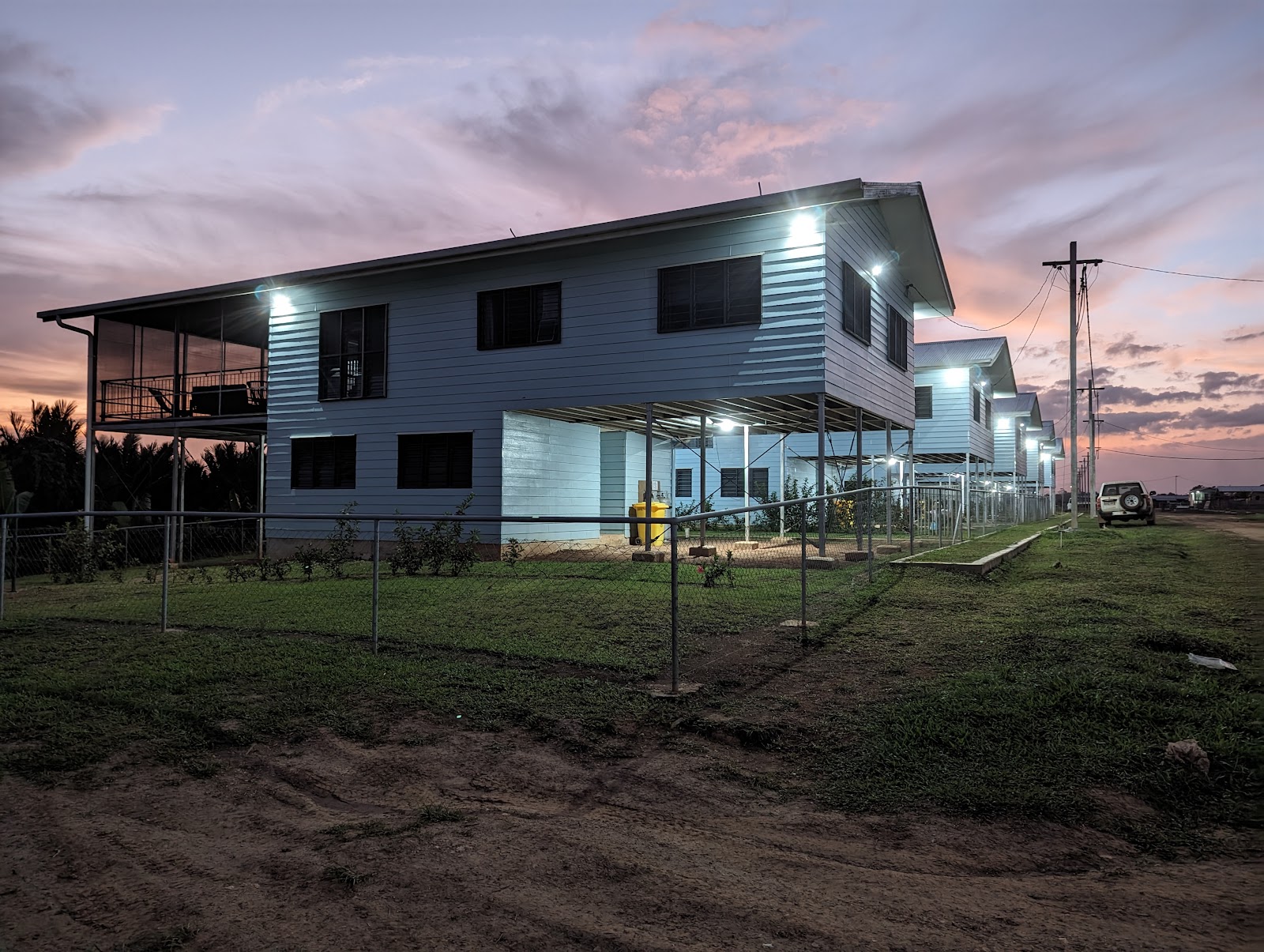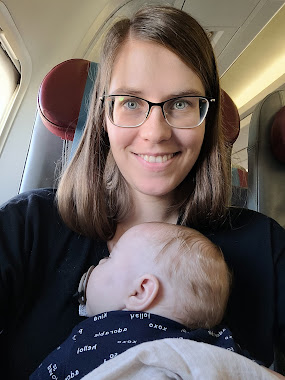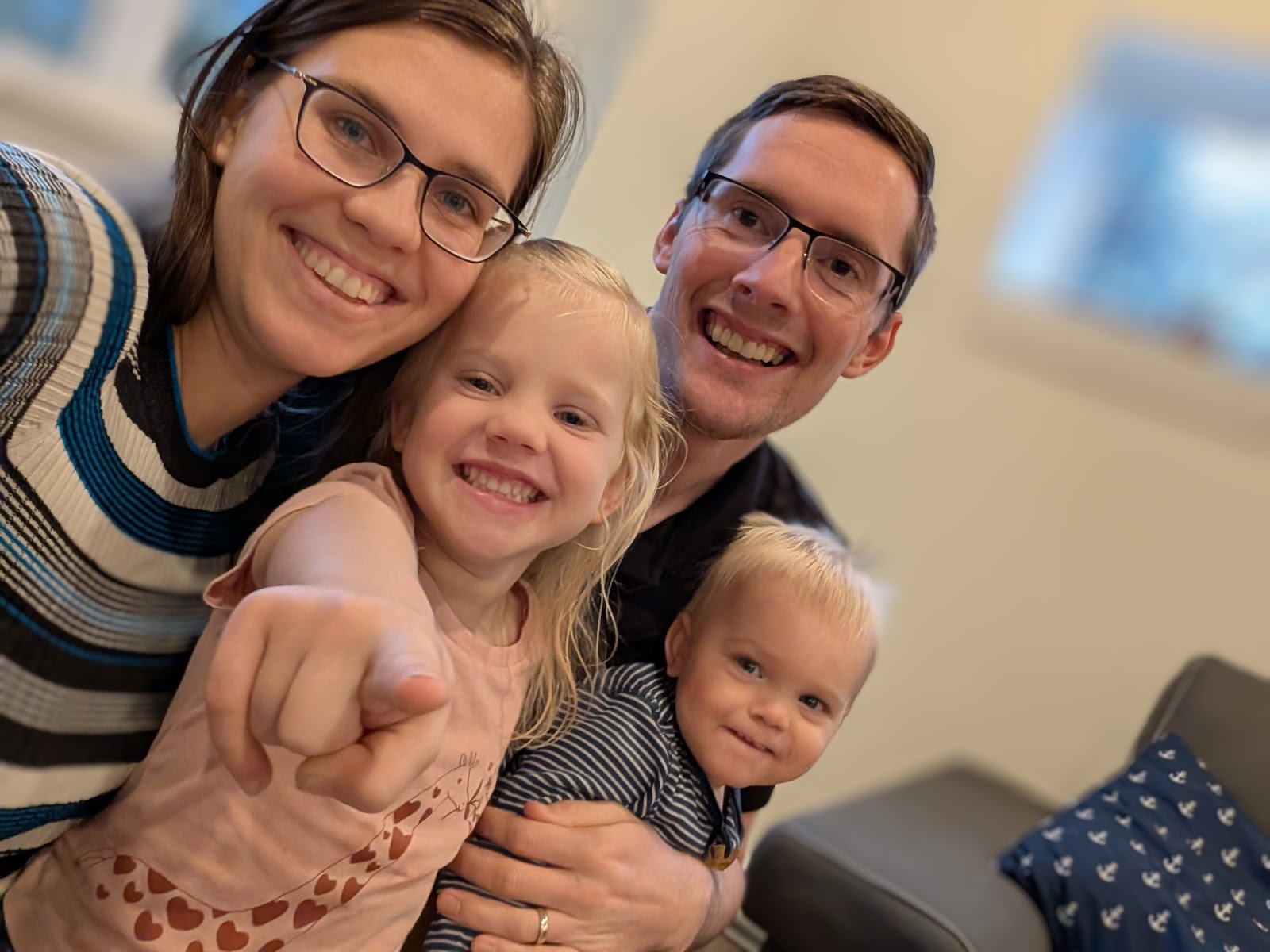As one of my (Nellicia's) friends said goodbye when we first moved to Balimo, she whispered, "Remember where your strength comes from and to use that strength to first take care of yourself." What she said stuck with me, but I assured myself that I wouldn't have any major difficulties with the move to the lowlands; and so, in our first month in Balimo, I forgot those words. I tried to do everything that needed to be done at the house while Brandon was flying. After a few weeks, the daily list of things to do started to seem more and more difficult to surmount -- laundry, windows, floors, bathroom, dishes, baking, changing diapers, toddler potty time, snack time, putting kids to bed, making dinner, showers and baths, tidying, reading stories, and the list goes on. All the while, the heat felt oppressive. The kids developed bad heat rash, and not long after our move we each took our turn with some virus or another. Bedtime never felt early enough, and even if we managed to get to bed early I went to sleep wondering how many hours of the night our little one would keep me up. I was overtired, stressed, and feeling exhausted rather than renewed each morning.
I knew that this was not sustainable, but also that all of these "things" did need to be done. I remembered how much it helped me in the past to have a dedicated devotional time each day; something I had let slip when Ezra was born. An encouraging book called Draw Near to God came to mind as well, and with it a whole list of quotes about the importance of setting aside a quiet time with God. With all of these things in my head, my heart started to agree. Instead of begrudging Ezra's early wake-ups each morning, I used this time to read a devotion and study a short passage of Scripture. Within only a few days, the wisdom of James' letter started to ring truer than it ever had before: "Draw near to God, and he will draw near to you." My attitude, outlook, mood, and thoughts shifted much more noticeably than I thought to expect. Yes -- it is still hot. Yes -- there is still an endless list of things to do, and yes -- I am still sleep deprived. But I can start each day feeling fresh and renewed again, with a clear sense of my purpose and calling. Nobody said life would be easy or free of cares and concerns, but living with hearts directed upward keeps a light glowing.
To ease some of the burden of the many day-to-day tasks that come with living in a harsh climate, we now enjoy the help of a local lady for a few hours every two or three days. This has been such a great relief and has given me the flexibility to have an hour of downtime each afternoon while the kids nap, something that I am so grateful for! It has also been great to connect with and get to know Daxi -- she is my insight into local culture, my housecleaner, my babysitter, my Gogodala teacher, and someone to talk to all in one. I have really enjoyed taking time to sit down with her to learn Gogodala. While the focus seems to be on learning new words and phrases, I am realizing that the most important part for myself is the relationship that is developing. Some days, I learn one new word and try to use it in different ways. Other days, I try to read out of my Gogodala New Testament to her while she deciphers my mispronunciations and translates for me. As she teaches me what the Bible is saying in the guise of translating Gogodala, it opens up discussions about God, who He is, and how this applies to us in our everyday lives. "Lulila is light? So this is saying that God is light? And if it also says that we are to walk in the light, I guess that would mean that we have to walk in the light of God." These discussions are so simple, and yet so powerful.
As we continued to have discussions like these and to read Scripture together, she started to express her desire to have a Gogodala Bible. Since Brandon sells Bibles at the airstrips he flies to, we were able to gift her a Bible and a pair of reading glasses before she took her Christmas break. Before coming to Papua New Guinea, it didn't occur to me how much people in other nations thirst for the Word of God, which is so easily accessible in Canada. Seeing Daxi's eyes light up (and nearly fill up) as she looked at her gift and expressed her gratitude was so humbling. The Word of God, and the hope that the Gospel conveys, is such a precious gift indeed!















